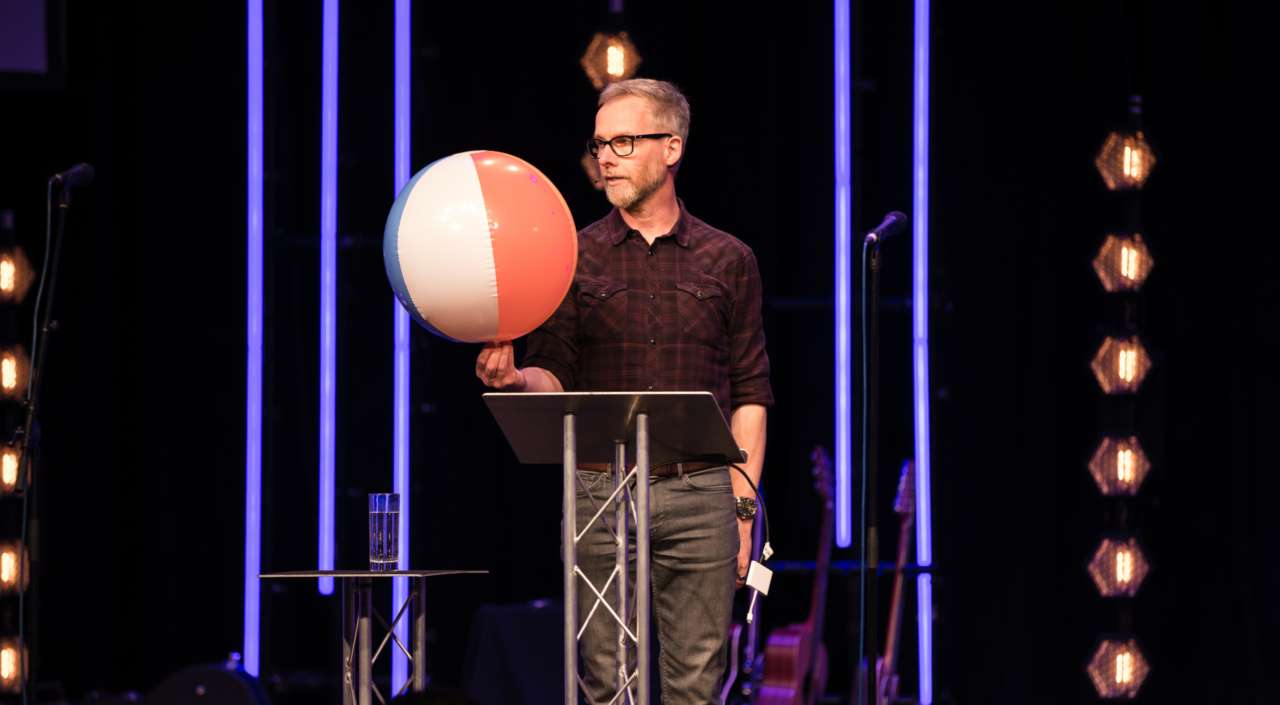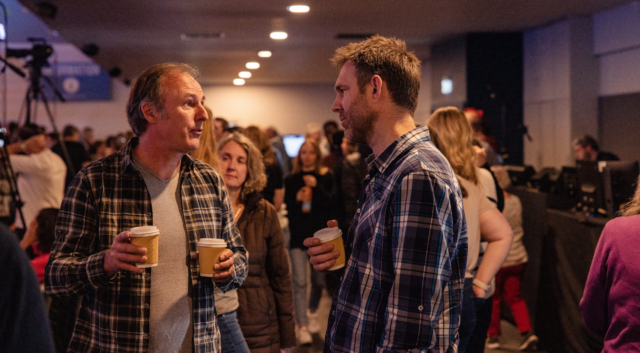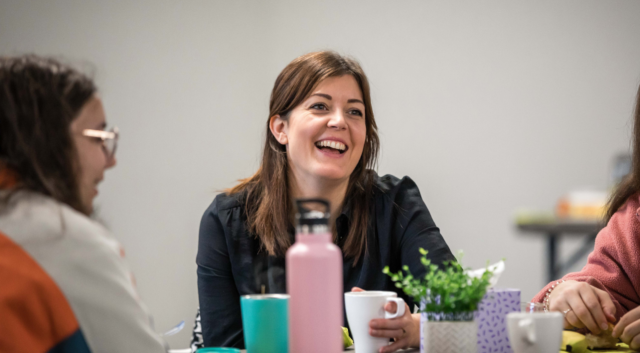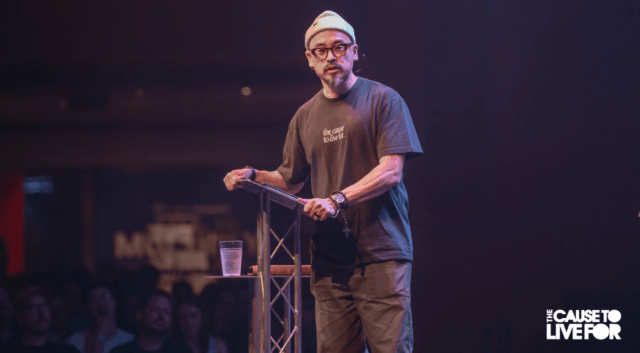Leadership Reflections 002
Over the last few years we have all heard and processed news of leaders who have fallen short of the high standards that are laid out in the Bible. For many of us these instances have been upsetting, painful and heartbreaking. We share those feelings of pain at the abuse, ill treatment and hurt that has been experienced around the Church.
It’s caused Debby and me to reflect again, with some of our team, on the leadership lessons we can learn in this moment; lessons for our own churches and those across the wider Vineyard family here in the UK and Ireland.
This series of Leadership Reflections contains some teaching and lessons which we have shared with Vineyard Senior Pastors over the last few years. As we continue to listen and learn from this season, we wanted to open these resources up to anyone who would find them helpful by publishing them publicly.
Our prayer is that you might find these helpful and by the grace of God, together we can create churches that are safe, Kingdom-centred communities for us all to call home.
John & Debby Wright
National Directors
Vineyard Churches UK & Ireland
____________________________
Debby and I have always found that hearing from others is important in making good decisions. Sometimes we have to make quick decisions, for instance to pivot as we had to many times during the COVID-19 pandemic. And we don’t have the luxury of including lots of others in the decision-making process.
Involve others
But when possible, with significant decisions, wisdom is found in involving others.
Proverbs tells us:
Plans are established by seeking advice (20:18) and Plans fail for lack of counsel, but with many advisers they succeed. (15:22).
If we want to make good decisions, it is important to remember that the bigger the potential change, the longer the process of discernment would normally be, and the more people we would do well to include on the journey.
In our 36 years of pastoral ministry Debby and I have sometimes processed change management well and sometimes we’ve done it badly. Both we, and those we’ve led, are really clear on which is preferable!
For instance, when we took on leading the evening service at South West London Vineyard, we made some significant changes very quickly. We instantly went for a younger feel, changing the whole stage setting and environment, rebranding the service, bringing in young people to the band – and in the process removing people who were already in the band – and making many other speedy changes, without talking to people and taking them on the journey with us.
The speed and failure in communication meant that people were hurt, and we got some heated pushback, which we deserved!
And we had to make apologies to repair some strained relationships.
Who to include
The inclusion of key stakeholders is very important. It’s worth considering early in the process, who is going to be particularly affected by a decision, and what they might think about it. Then make space for conversations where options might be explored.
It can be really helpful, when discerning, processing and communicating significant changes, to bring together the key stakeholders to gather their best thinking, to weigh the decision and to refine how it’s communicated and worked out practically.
Know your blind spots
If we just go with our own sense, we can miss other really insightful perspectives because we all have blind spots.
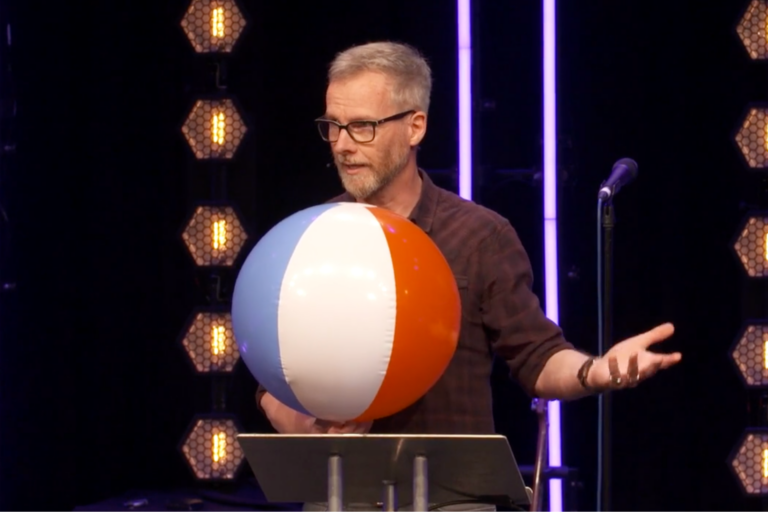
If I asked you “what’s the colour of this striped beach ball?” Some of you might say “it is very evidently red, white and blue.”
From your angle that would exactly describe the colours of this ball.
And there is good evidence for that conclusion. It’s what is showing in this photo.
However, another person might look at the beach ball and say that it is quite definitely yellow, green and orange!
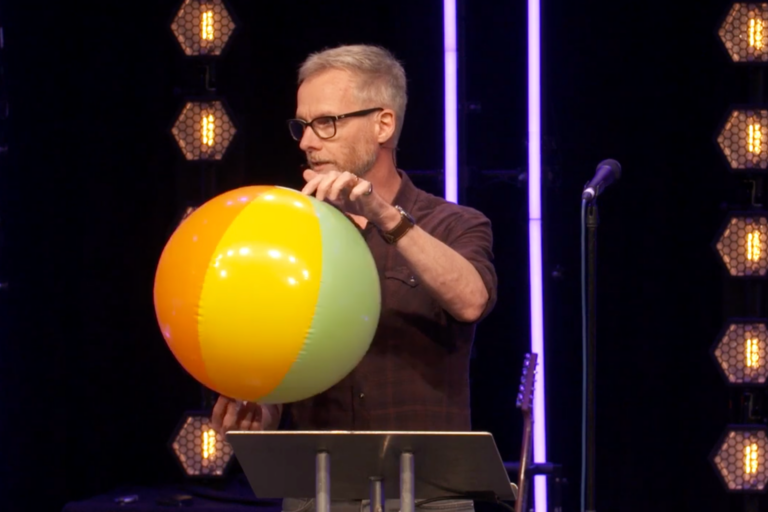
Who is right? Well, they both are.

The truth is the colours on the ball are more complex than may at first appear, and different people have different perspectives from different vantage points. As leaders, we would do well to remember that when making decisions or leading through a time of change. No matter how experienced we are, it can be foolish to assume we have the full picture. We all have blind spots, and it is so worth including others who see things from another perspective.
No matter how experienced we are, it can be foolish to assume we have the full picture.
With significant developments at Trent Vineyard, such as expanding the building or building the Kids’ Centre, or going to a third service, we have often gathered the staff and asked them questions like:
- What excites you about the potential of this development?
- For you to be on board with this, what questions would you want answers to?
- What obstacles do you see that need to be overcome?
And it is astonishing how the different groups have given significantly different answers to those questions. People see things differently from their different perspectives.
These conversations have informed both our decisions and the crafting of our communications taking into account the variety of people who we are wanting to go in the preferred direction with us.
In this way every decision that we take can be robust, well thought through, clearly understood and easily owned by those we are leading. And ultimately the process of leading through change can go a little smoother.
